Whale Dies After Boat Collision At the Jersey Shore
A tragic incident unfolded in Barnegat Bay this past Saturday afternoon when a minke whale collided with a small motorboat, nearly capsizing the vessel and throwing one person into the water.
The moment was captured on video by nearby boaters, showing the 20-foot whale surfacing and making contact with the craft before swimming away. (Screenshots are from the video uploaded to the Jersey Shore Emergency News Facebook page)
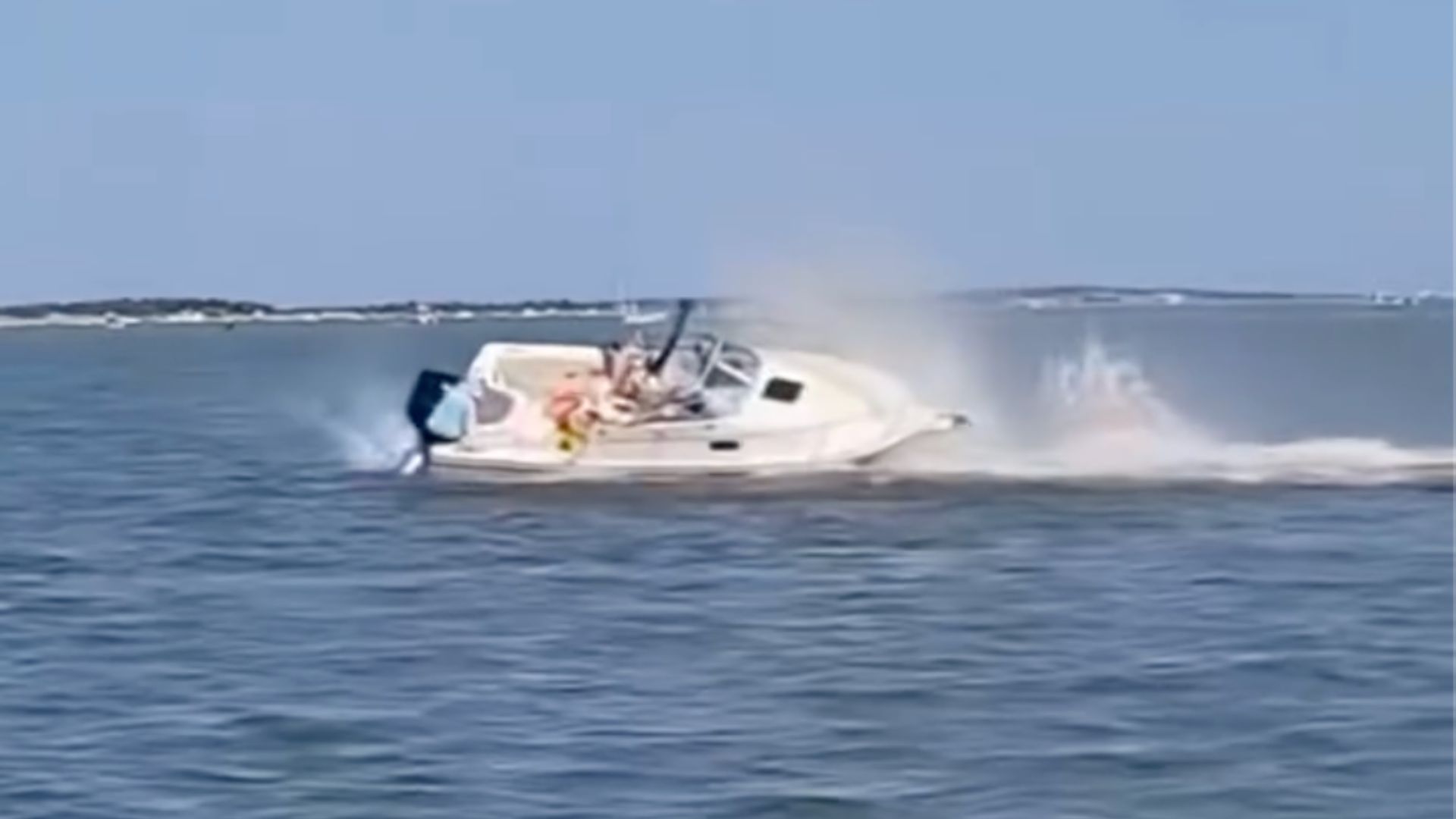
Whale Dies After Boat Collision At the Jersey Shore
The person who fell overboard was able to tread water until they were brought back aboard. The whale, however, was later found deceased after drifting onto a sandbar in shallow water.
Due to tidal conditions, marine authorities were unable to approach the carcass for a close inspection immediately.
Observations from a distance showed no visible injuries on the side that could be seen, but reports suggest the whale may have sustained injuries prior to the collision.
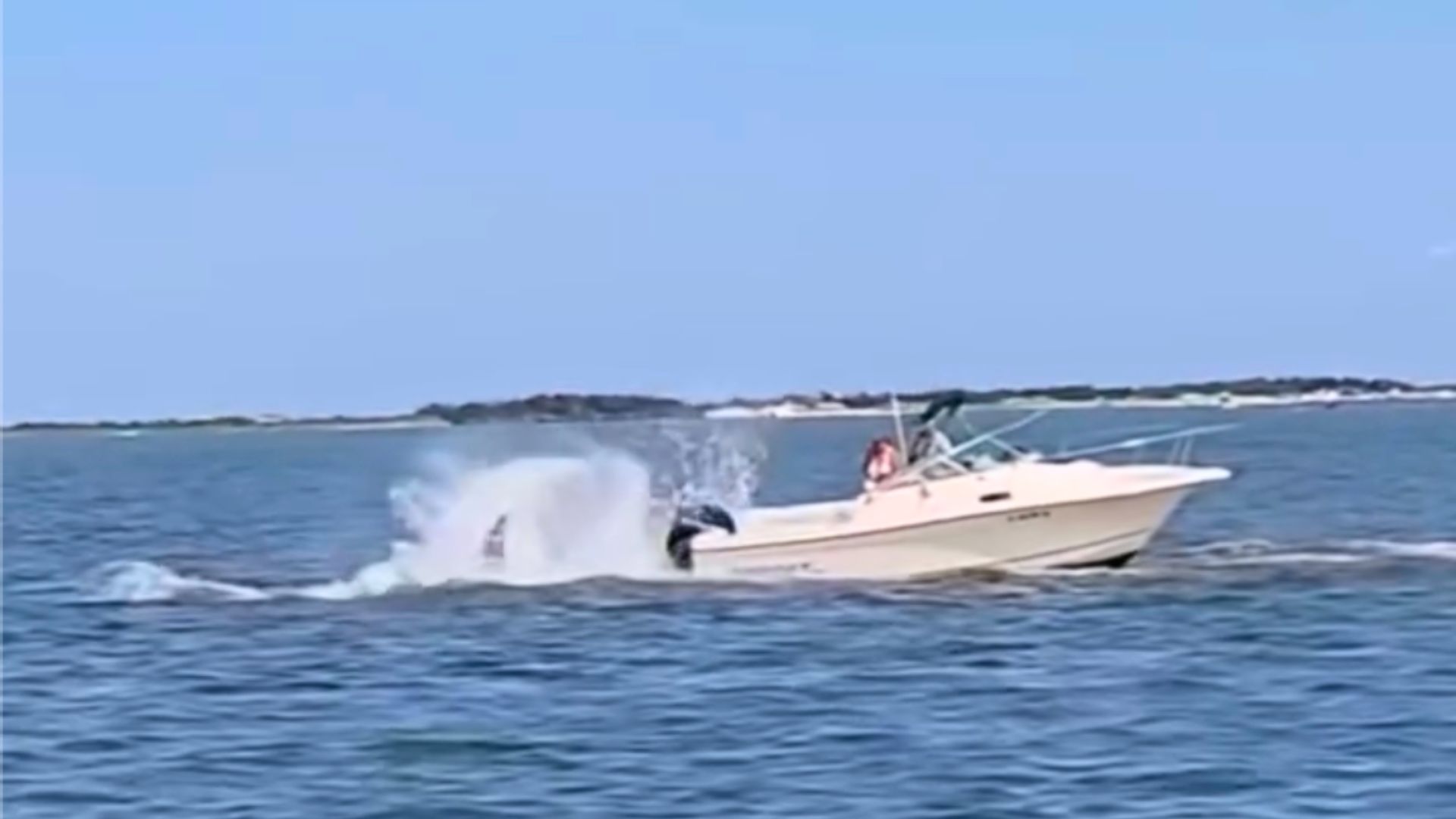
The animal is scheduled to be towed to a state park for a necropsy to determine the cause of death.
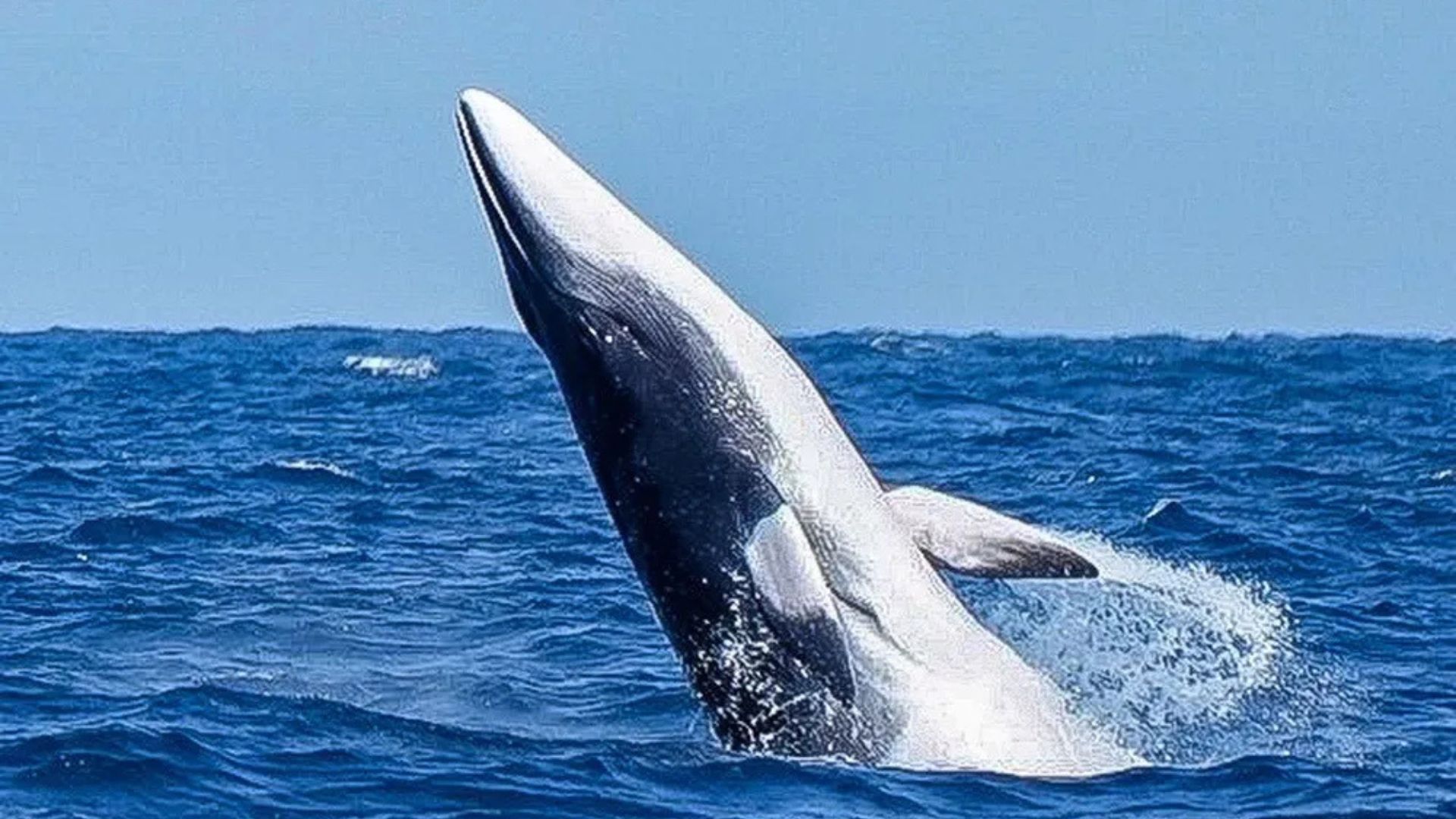
While large ships are often associated with whale strikes, small recreational boats can also cause severe, even fatal, injuries to whales.
In the waters off New Jersey, incidents have been increasing in recent years as whales follow schools of baitfish closer to shore.
Vessel strikes are one of the leading causes of death for large whale species, and speed plays a critical role in the severity of injuries.
Even at 15 knots, the chance of a collision being fatal is high.
This is why certain regions along the East Coast have seasonal speed restrictions for larger vessels, requiring them to slow to 10 knots or less in high-risk areas.
From 1992 to 2023, nearly 80 fatal marine mammal strikes were recorded in the New York Bight region, which includes the Jersey Shore.
In 2023 alone, 11 fatal whale strikes occurred, the highest number in three decades.
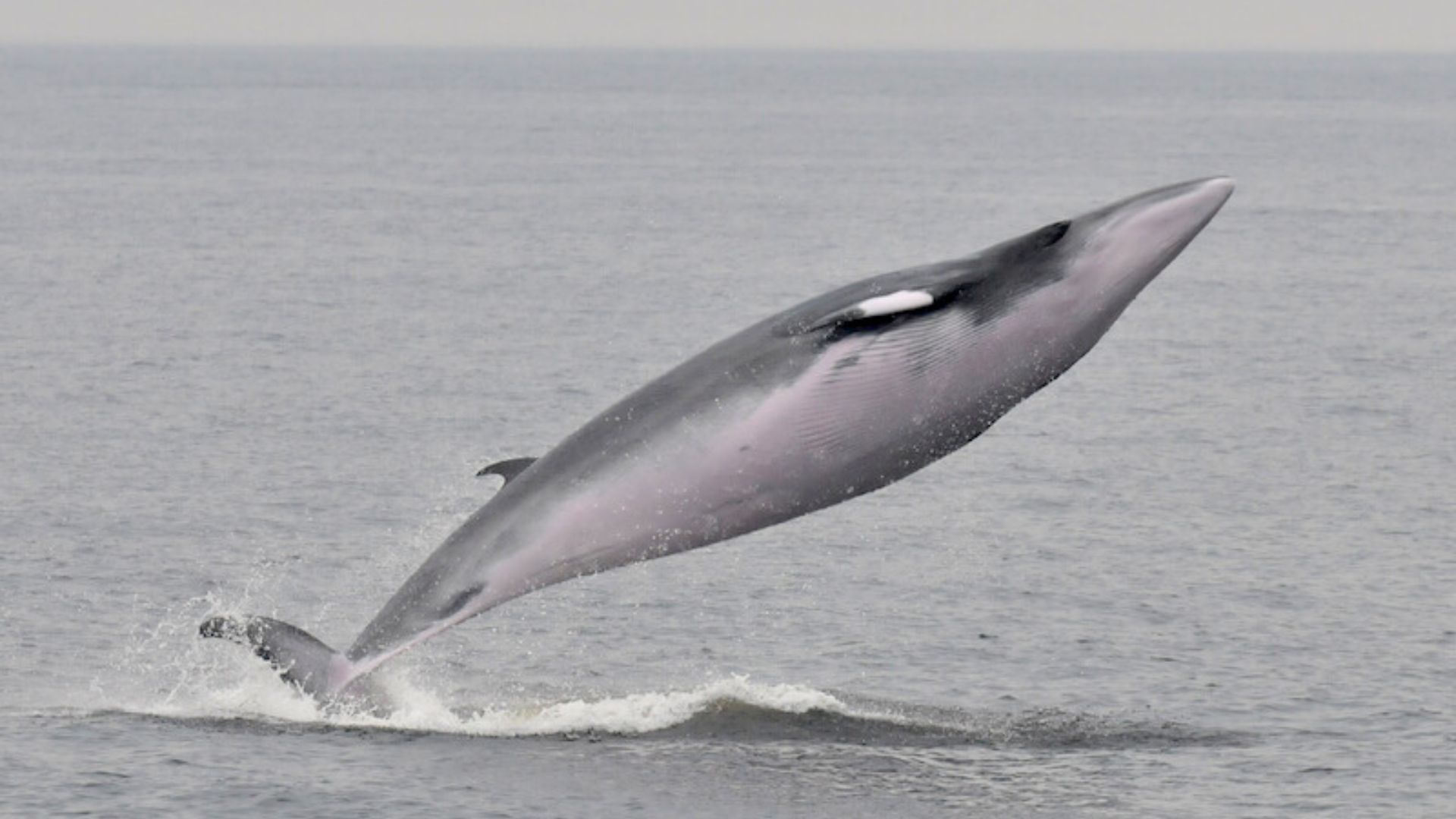
Minke whales (Balaenoptera acutorostrata) are the smallest member of the baleen whale family found in the North Atlantic. Adults typically reach 16 to 26 feet in length and can weigh up to 10 tons.
Their streamlined, dark-gray to black backs contrast with lighter undersides, and they are easily identified by distinct white patches on their flippers.
These whales are seasonal visitors to New Jersey waters, often appearing in the summer months to feed on small schooling fish such as herring, mackerel, and sand lance, as well as krill and other zooplankton.
They use baleen plates to filter food from seawater and are capable of bursts of speed over 20 knots.
Also See: SOLVED! Bones Found on South Jersey Beaches Linked to 180-Year-Old Shipwreck
Minke whales are generally solitary but may be spotted in small groups of two or three, especially in feeding areas.
They are curious by nature and have been known to approach vessels, though they are less acrobatic than humpbacks.
Their blows are low and relatively inconspicuous, which can make them harder for boaters to detect.
They can live for 30 to 50 years in the wild.
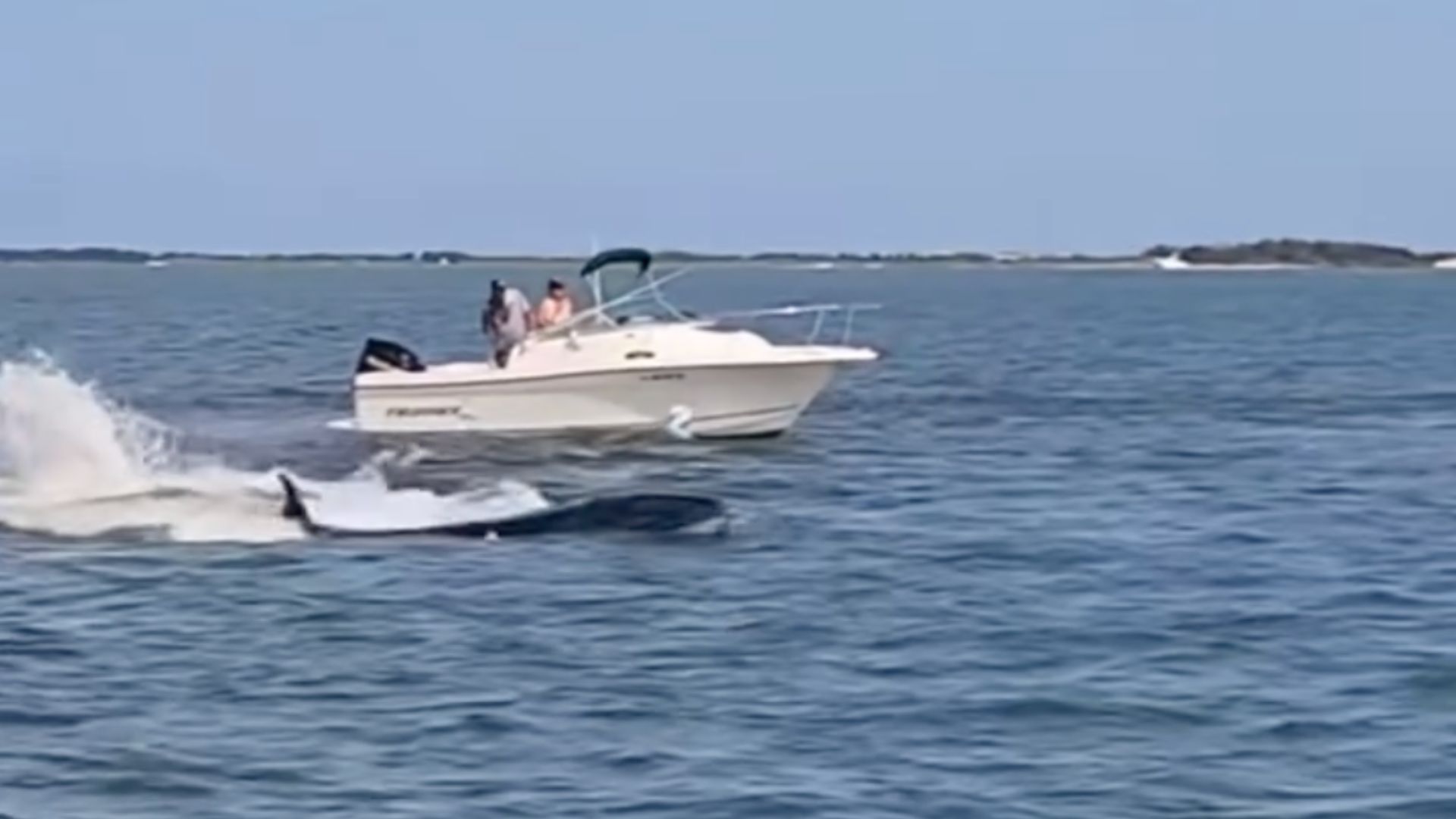
For boaters, the best way to avoid collisions is to stay alert and reduce speed in areas where whales are active.
If a whale surfaces nearby, engines should be placed in neutral or turned off, allowing the animal to pass without interference.
Maintaining a minimum distance of 150 feet from any whale is recommended, both for the safety of the animal and those on board.
This incident in Barnegat Bay is a sobering reminder that human activity on the water can have devastating consequences for marine wildlife.
As more whales are spotted closer to the New Jersey coastline, awareness and caution on the part of boaters will be critical in preventing future tragedies.
We do have a ton of wild-life down here, as the ocean is their home and we are their guests.
Last week we were able to observe dozens of dolphins off the coast of Cape May Point. You can watch a video of them jumping out of the water below.
Below you watch, please consider subscribing to our Youtube Channel.
